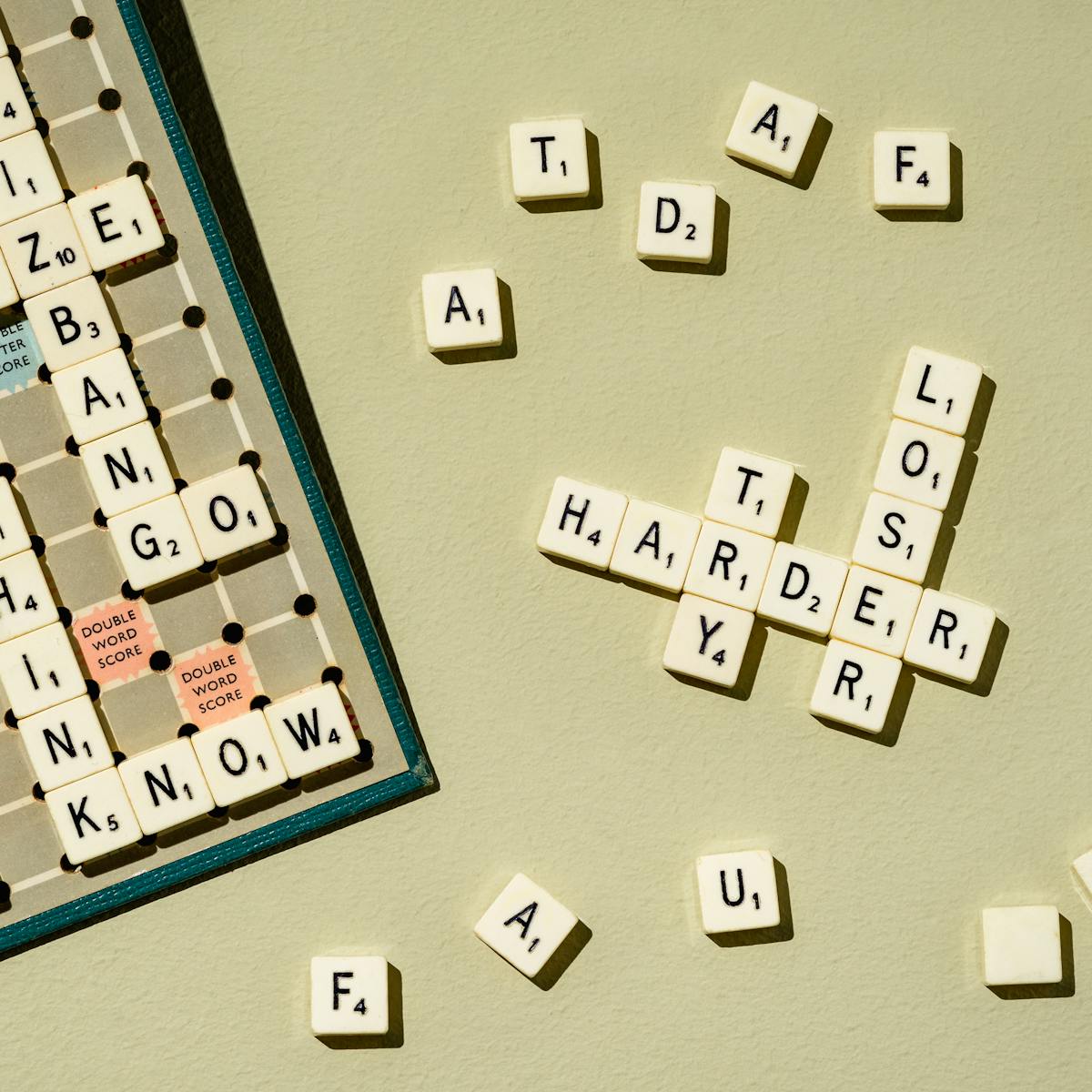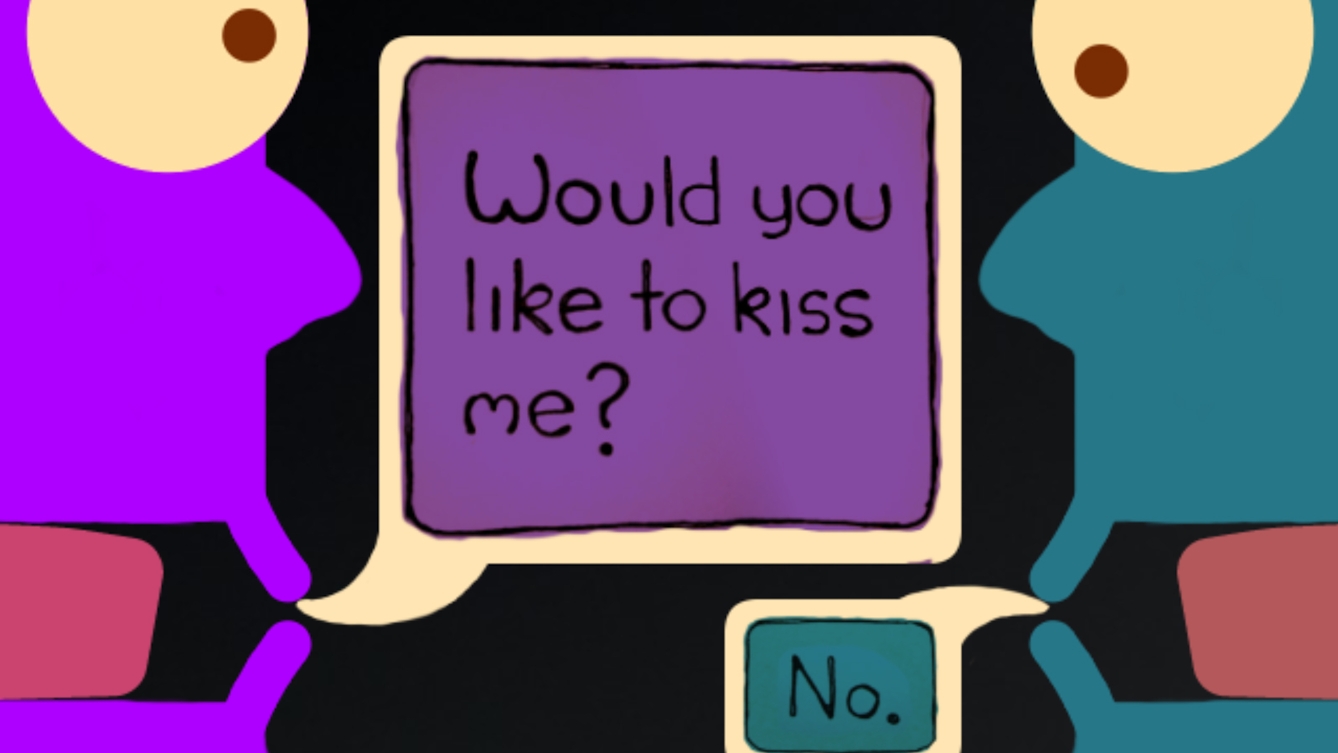Games of skill are less appealing if you know a certain person will always win. But there are some games that get round this. With ‘fairness’ built in, everyone has an equal chance of winning without compromising their playing style.
How to play with people who are better than you
Words by Holly Gramazioaverage reading time 9 minutes
- Serial

I’m good at word games, but not good good: normal good, good like someone who solves a few cryptic crossword clues and then puts the paper down. I’m bad at strategy games, but not bad bad: game-player bad, like someone who doesn’t have an overarching plan but does think a couple of turns ahead.
I’m bad at physical games too: definitely bad bad this time. I spent a summer once dutifully trying to play cricket with friends on Saturdays and all I got from it was legs covered in big purple asymmetrical-circle bruises that faded through green just in time for the next crop.
(Living in the UK, I can swim okay, which is a delightful revelation to me because I’m Australian, and by Australian standards I very much can’t swim at all. But swimming games don’t come up that often.)
I’m thinking about skills because I’m skyping with Bez Shahriari, a game designer whose card game Yogi gives players a set of escalating physical challenges. Each turn you draw a card that gives you a physical prompt: maybe you have to keep your right thumb pointing down; maybe you have to hold the card you’ve just drawn between two fingers. Once you’ve drawn a prompt you obey it for the rest of the game, even while it’s not your turn, even while you’re drawing new cards; the difficulty accumulates as your simultaneous tasks add up. If you fail at any of them, you’re out.
Shahriari spent a lot of time thinking about how to make this game work for as many people as possible. She talks about testing out all the individual challenges: “I found that not everyone can put their head to their knee – I was really surprised by that!” (Just out of frame of my webcam, I try to put my head on my knee. I can’t.) And she talks about the concept of ‘orthogames’, a term invented by game designer Richard Garfield to describe games where people make decisions or fulfil tasks to select a winner. Chess, football, the card game Magic: the Gathering, fencing, but also silly things, as long as there’s a process of doing something that leads to a victor.
Door slam
To start, download a noise meter onto your phone.
Now, close a door quietly, and see how many decibels you reach. Do it again, and again, louder each time, keeping track of how often you’ve done it.
Your turn ends when you finally fail to increase your volume between two slams.
The player who manages the most slams before the end of their turn is the winner.
These orthogames have an intrinsic inaccessibility: they’re testing a skill, and if that skill is something you can’t do, then you can’t play. The job of a game designer in this situation, Shahriari says, is to make sure the game can be played by as many people as possible who can perform the key activities of the game. Anyone who is excluded from play shouldn’t be excluded by accident or thoughtlessness, but rather because the specific thing the game focuses on is something they don’t feel comfortable with or physically can’t perform.
Ask for consent in Realistic Kissing Simulator.
The category of ‘orthogames’ is useful is because of course many games aren’t like this. Orthogames exclude, for example, a lot of role-play games (RPGs), interactive artworks, digital games like Realistic Kissing Simulator, and games driven purely by chance.
As stronger players pick up more obligations, the weaker players get a chance to stay involved.
Non-orthogames do tend to involve certain skills that players need to have or share in order to play (Snakes and Ladders requires a level of manual dexterity; most RPGs require at least a shared language between players). But as long as you can perform the fundamental task, the game isn’t testing you to find a winner, and often, players with different levels of skill or familiarity can more easily play together.
This doesn’t mean that competitive games of skill are off-limits for groups with even radically different skill sets. Let’s look at a really simple game, and the way that different variations might work for different contexts.
I spy
This is a guessing game for two or more players. All the players take turns at being the leader of the game.
When it’s your turn to be leader, pick something you can see: a chair, perhaps. The sky. Your cousin Tabitha. Then say, “I spy with my little eye… something beginning with [whatever the first letter of that thing is].”
Everyone else takes turns to guess what your selected thing-you-can-see might be. Whoever guesses it first wins.
I Spy isn’t super-competitive but it does reward a few specific skills. It doesn’t care about how tall you are or how good you are at anagrams, but it cares a lot about your sight, how observant you are, your spelling, and – to some extent – your psychological acuity: can you guess what another person might have noticed?
There are games very like I Spy that prioritise a different set of skills:
Something new
Based on Moka Bandi, from the collection ‘Yulunga: Traditional Indigenous Games’:
Sit around together until one of you notices something – ideally something new, such as a bird sitting nearby or a flower newly in bloom.
That player then looks anywhere except at the thing they’ve noticed, and says: “What am I thinking of?”
Everyone else guesses until someone gets it right.
These rules don’t care about your spelling, but they care a lot about your memory (what’s changed?) and your psychological acuity (what might your fellow player care about enough to have noticed?).
This points to one way to play a game with people who are good at different things from you: just pick a game that requires a narrow set of skills where you and the other players are pretty well matched. (A standard change to I Spy that works for children who aren’t good with letters, or for a group with a limited shared vocabulary is to use colours instead.)
Creative ways to make games ‘fair’
Another solution is to adjust what we think of as ‘fair’. Usually for a game to feel fair we want everyone to start off at the same level, and for everyone to have at least some chance of winning, but those two aims can be incompatible. So ditch one of them!
Maybe you decide not to care about starting at the same level. That’s usually an easy fix. The strategy game Go, for example, gives weaker players extra stones on the board to start, allowing both players to try their hardest and feel like they have a chance of winning. In I Spy, maybe you take two guesses for every one that a stronger player takes.
Or maybe you decide you don’t care about symmetry of accomplishment. In that case, adjust your aims: one player might need to win ten rounds to ‘win’ overall, and another only three.
Shahriari has thoughts about this as well. Her Wibbell is a word game where you have to come up with a word containing a certain selection of letters. If you succeed, you pick up a card that acts both as a point, and as an extra, personal obligation – a letter that you and you alone have to include in any future words. This doesn’t mean that weaker players are likely to win overall, but it means that as stronger players pick up more obligations, the weaker players get a chance to stay involved.
I played Wibbell with non-game-playing strangers at an event I was running, and I was shocked to be able to take part wholeheartedly: to genuinely try to win, not just guess slowly to facilitate an experience for other players.
An advantage of this method – increasing difficulty for the leading player as an organic part of the game – is that it doesn’t require decisions in advance about players’ skill levels. Instead, the game responds dynamically to whatever’s going on. And, gloriously, it’s the sort of tweak that can be applied to all sorts of different games, without any need for cooperation from the original designer. Let’s try another I Spy variant:
Speed I spy
This game is basically I Spy – but with a time limit. You’ll need a timer of some sort, and four coins or counters in front of each player.
When you’re leading a round, choose something you can see and tell everyone what letter it starts with.
The other players takes turns to guess what that thing might be. When it’s their turn, they get five seconds for each remaining counter in front of them – so to start off with, they get 20 seconds each to make as many guesses as they like. As the leader, it’s your job to keep track of the timer and tell them when their turn’s up, as well as telling them if they’re right.
When someone gets it right, they lose a counter.
Once people start losing counters, they of course have shorter turns – 15 seconds when they’re at three counters, ten when they’re at two, five when they’re at one. When someone gets rid of their final token, they win the whole game.
A disadvantage – as this example shows! – is that adding challenges for the better players can make a game more complicated. But it can also be more fun. And if a game isn’t working for you, for whatever reason – well, you’re making it exist by playing it, so why not change the rules and make it exist a bit differently?
About the author
Holly Gramazio
Holly is a game designer, curator and writer based in London. She works both independently and as half of Matheson Marcault. Her recent projects include the collaborative drawing game Art Deck and the script for the video game Dicey Dungeons. She founded Now Play This, a festival of experimental game design based at Somerset House in London, and is interested in games that get people creating or looking at their environments in new ways.

